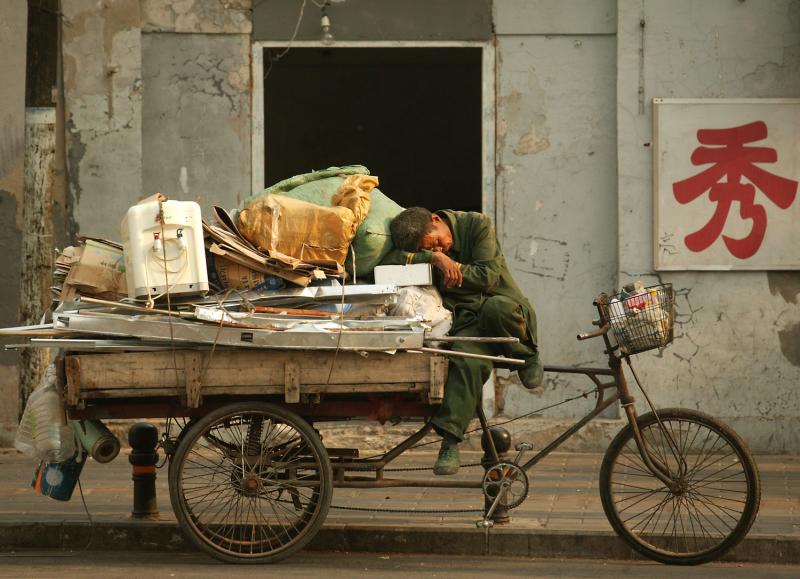This document advocates that real progress is being made to reform the hukou system only in small and medium-sized cities (cities with populations less than 500, 000), allowing rural migrants to settle in cities on a permanent basis and receive public services equal to that of their urban counterparts who have permanent residence permits.
In order to know whether the reforms will work, it is necessary to see the concrete action plans from both the central and the local governments. But, there will be no significant progress unless the following three issues are effectively addressed.
First, opening up only the relatively small cities to hukou reform is far from enough. A significant proportion of China’s rural migrants are employed in large and super-large cities, where stable job opportunities in manufacturing and low-end service sectors are aplenty. This is where urban public services are more adequate and where most of the younger generation migrants hope to spend their lives. Hukou reform in small and medium-sized cities was piloted in many parts of the country as early as the middle and late 1990s, but success was limited due to limited employment opportunities and poor public services. If hukou reform is confined to relatively small cities, there is reason to be sceptical of potential progress.
Second, hukou reform in any locality should not target only migrants from rural areas of the same province, prefecture or county. China’s rural-urban migration involves large scale movement of people from the agriculture-based inland areas to the more industrialised and urbanised coastal areas. Thus, a significant share of China’s internal migrants migrate outside their home provinces, prefectures and counties. To be effective, hukou reform must assist rural migrants coming from other jurisdictions.
Over the past several years, there has been a number of locally-run reform projects related to hukou, such as those in Chengdu, Wuhan and some cities of the Zhejiang and Guangdong Provinces. The results of such pilot reforms are limited because they usually only target rural migrants from within the same jurisdiction. For a rural migrant from the inland province of Hunan, working in a city such as Guangzhou or Shenzhen, in the Guangdong Province, it is still extremely difficult, if not impossible, to obtain an urban hukou there.
Finally, and perhaps most importantly, effective hukou reform needs to extend the hukou-linked urban public services to rural migrants. Currently, the privileges include urban social assistance (known as ‘the Minimum Livelihood Guarantee Scheme’), equal access to urban public schools for migrant children and locally-funded public housing schemes. It is a common misunderstanding that China’s urban hukou-linked benefits include social insurances such as pension, medical insurance and unemployment insurance. These social insurance schemes are actually job-related rather than hukou-related. Granting rural migrants urban household registration status, therefore, doesn’t imply that city governments need to be responsible for providing social insurance for rural migrants.
To achieve real progress in hukou reform, city governments need to finance the aforementioned social assistance, schooling and public housing services for migrants. Unfortunately, local governments in China often have little incentives for doing this. In 2004 the Chinese central government, addressing the issue of schooling for migrants’ children, mandated that local governments in migrant-receiving cities provide equal school access for migrants’ children, but no additional financial resources have been allocated for such purposes. Many local governments thus continue to limit school access to migrants’ children.
If the central government really wants to push hukou reform forward, it should either provide financial assistance to local governments or generate additional tax revenue at the local level. One possibility is to introduce property tax into the local tax system while requesting local governments allocate at least some revenue to provide equal school services for migrants’ children.
Among the three urban hukou-linked services, providing public housing for migrants could be the most expensive. But if some coordinated reforms in land development could be implemented, so that rural collectives on the urban fringe could legally develop their own construction land for housing rental purposes, the market, rather than the government, could provide affordable yet still decent housing for the hundreds of millions of Chinese internal migrants.
One needs only to look at the urban villages in Shenzhen and Guangzhou. There, unlike most other localities in China, local governments are much more permissive to land development on the urban fringe by rural collectives. As a result, millions of migrants from other parts of the country find the massive apartment buildings in Shenzhen and Guangzhou’s urban villages to be the only affordable housing right for them.
Ran Tao is Professor at the School of Economics, Renmin University of China, and Senior Researcher in the Center for Chinese Agricultural Policy, Chinese Academy of Science.


Talking about real reforms of the hu kou system, one must realise that it is the constraints of other social security and government services systems that will determine the speed of the real reforms.
While the problems presented for migrant workers, mostly referring to those from rural areas, are the talking point, real reforms of the system should be based on the rights of people to choose the locations to live, work, study and so on, and the related underlying efficiency issues.
It is equally applicable to any person in China, except certain people who have the real privilege to choose for their own under the current system. There are so many other people who are affected by the current system negatively, although they are relatively marginalised and are not so obvious as the migrant workers.
If the objective of the reforms is not properly understood, they are unlikely to be delivered in the most efficient and effective ways.